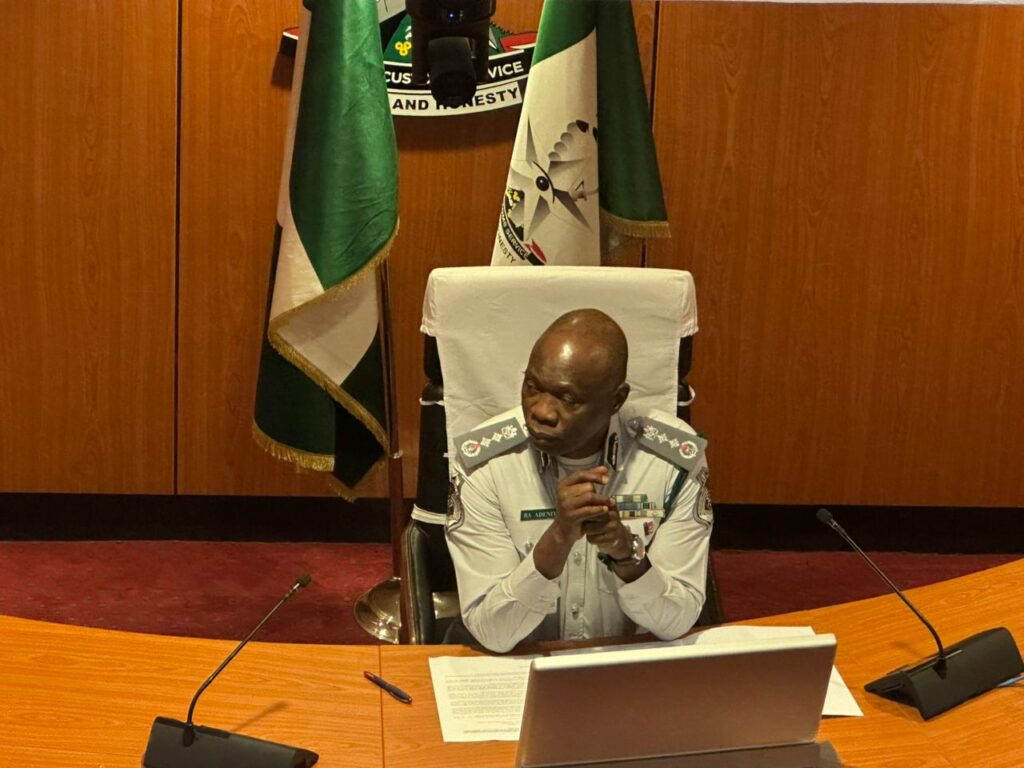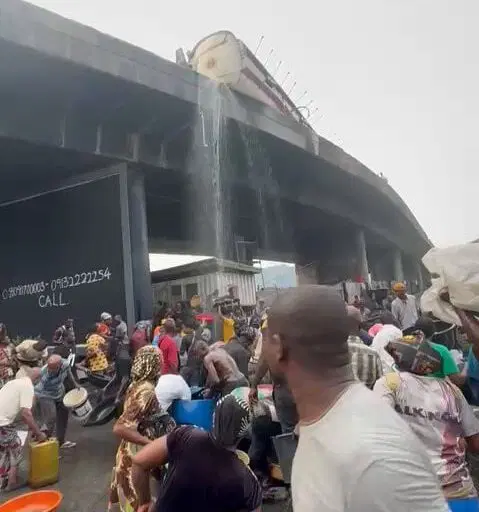
The Nigeria Customs Service on Monday took a major step towards modernising its operations with the official launch of the Customs Verification Management System, a digital platform designed to enable Nigerians verify the clearance and duty payment status of imported vehicles within minutes.
Unveiling the platform at the Customs Headquarters in Abuja, the Comptroller-General of Customs, Adewale Adeniyi, said the initiative represents a bold step in the service’s ongoing reform drive aimed at improving transparency, accountability, and efficiency in customs operations.
According to him, the new verification system was developed in partnership with the Trade Modernisation Project and indigenous technology firm Afripoint Consult to address long-standing challenges associated with vehicle clearance and documentation.
“Today marks an important milestone as we head into our ongoing drive to modernise the operations of the Nigeria Customs Service. We are hoping to build our progress on collaboration with the private sector, consolidation of our previous gains, and the delivery of innovative solutions to improve operational efficiency and effectiveness. The launch of the customs verification management system today is a clear demonstration of that strong commitment.
“This platform redefines how vehicle verification is conducted across our customs ecosystem and across the length and breadth of Nigeria. For years, verification of imported vehicles relied on fragmented and outdated methods, systems that left room for misinformation, for fraud, leakage, costing the country significantly, and as we saw in the drama, leading to a lot of frustration.
“Recognising the urgency for change, the Nigeria Customs Service, in partnership with the trade modernisation projects and our indigenous technical partners, has developed an innovative homegrown solution to this challenge. With CVMS, we are introducing a simple, seamless, and secure way to verify vehicle duty payment status,” Adeniyi said.
The platform, which has been in trial mode for about two months, is now fully operational and can be accessed from anywhere in the world. Nigerians can verify vehicles by entering the Vehicle Identification Number and paying a N15,000 verification fee using any debit or credit card issued locally or internationally.
Adeniyi explained that the system was built to empower citizens, importers and dealers with verifiable data, while helping customs officers eliminate manual bottlenecks, standardise operations across commands and strengthen enforcement capabilities.
“This platform democratizes access to verified information, enabling the public to make informed purchase decisions. For our officers, it eliminates inconsistencies and provides real-time validated data that improves decision-making,” he added.
The CGC emphasised that the new system aligns with the Federal Government’s broader digital transformation agenda and underscores the Customs Service’s commitment to modern, technology-driven solutions that enhance revenue and national security.
“This new system empowers the public and strengthens the integrity of our service by promoting transparency, accountability, and trust. The platform would provide a centralised digital system where vehicle records can be traced, verified, and confirmed within minutes, improving the efficiency of our enforcement units, the federal operations units, and every relevant arm of the customs. In essence, this platform democratizes access to verified information, enabling the public to make informed decisions and contributing to a culture of transparency in vehicle importation and trade.
“For the general public, the system brings transparency and ease of access. For the first time, Nigerians can verify the clearance and duty status of any imported vehicle directly from the Nigeria Customs Service without intermediaries, without delays, and without doubt. This gives citizens, importers, and dealers the confidence to transact with clarity and certainty, reducing the risk of fraud, and ensuring that every vehicle purchased is backed by verifiable customs data and papers.
“For our officers, the system enhances efficiency and accountability. By digitising and standardising the vehicle verification process, the system eliminates manual bottlenecks, ensures consistency across the commands, and equips officers with real-time validated information. It also provides analytics and reporting tools that help us to identify anomalies, improve our decision-making, and strengthen our enforcement. Simply put, this system makes customs work smarter, faster, and more transparent,” he said.
Speaking earlier, Afripoint Consult’s Managing Director, Ajibola Adetula, described the CVMS as a “homegrown, bifocal platform” that serves both the public and enforcement officers.
“The system allows the public to quickly confirm if a vehicle was duly cleared by Customs, while officers can cross-check the authenticity of clearance documents even outside working hours. It’s a game-changer for transparency,” he said.
Adetula noted that the platform is integrated with Customs’ clearance database dating back to 2017, enabling users to verify any vehicle processed within that period.
Similarly, the Chairman of the Association of Motor Dealers of Nigeria, Ajibola Adedoyin, who attended the event, hailed the development as long overdue, recalling that vehicle dealers had for years demanded a system that would simplify verification and reduce harassment of legitimate importers on the road.
“This will give us something concrete to fall back on whenever there’s a dispute about a vehicle’s clearance status. It’s a welcome relief for our members,” he said.
The Nigeria Customs Service has in recent years intensified efforts to automate its operations as part of a broader modernisation strategy under the Trade Modernisation Project, a 20-year concession aimed at improving trade facilitation, boosting revenue generation and reducing corruption in customs processes.
The CVMS is one of several digital initiatives introduced to deepen technology adoption and collaboration with the private sector to streamline customs procedures and enhance public trust.
The move also follows increasing concerns over fake customs documents and the circulation of smuggled vehicles in the country, which have led to loss of government revenue and frequent clashes between enforcement units and car dealers.
By integrating vehicle records into a centralised database, Customs hopes to close these loopholes and support the Federal Government’s target of achieving a fully automated border management and trade facilitation system by 2030.
With the launch of the CVMS, Nigerians can now verify imported vehicle clearance directly from the service.
PUNCH.




